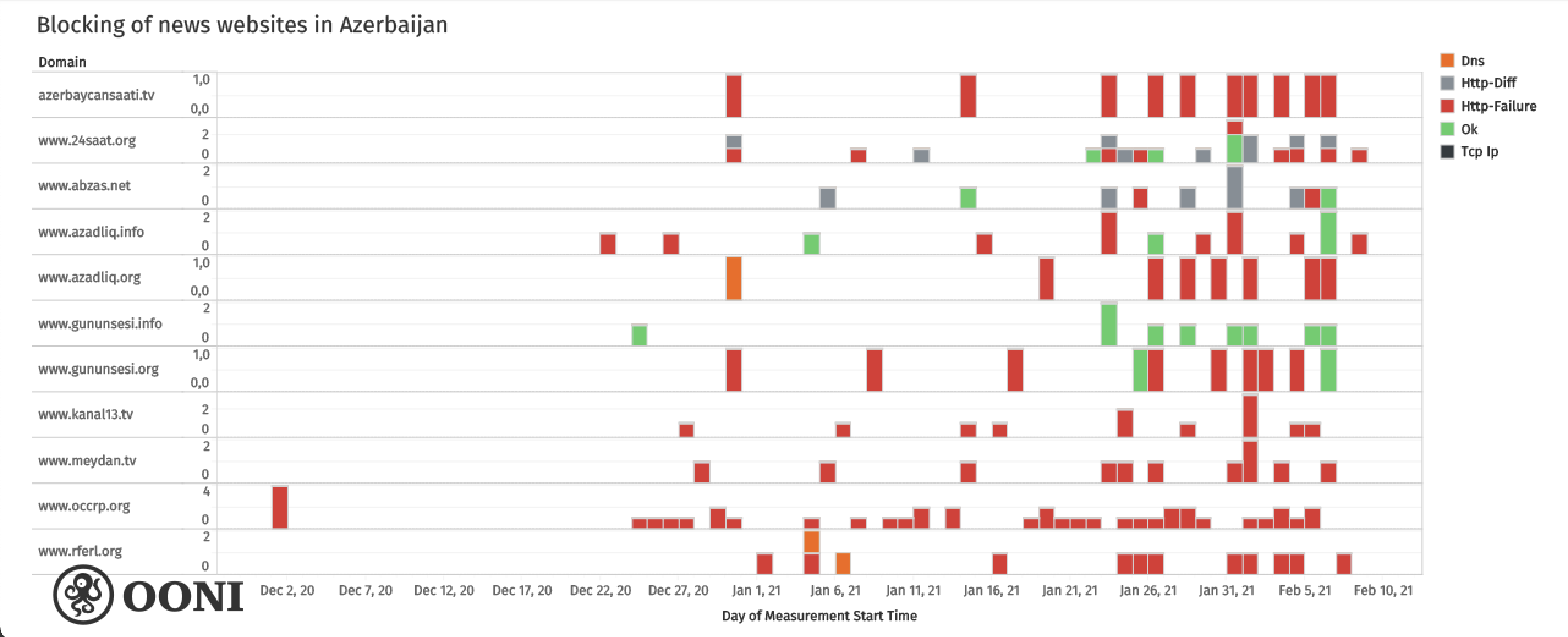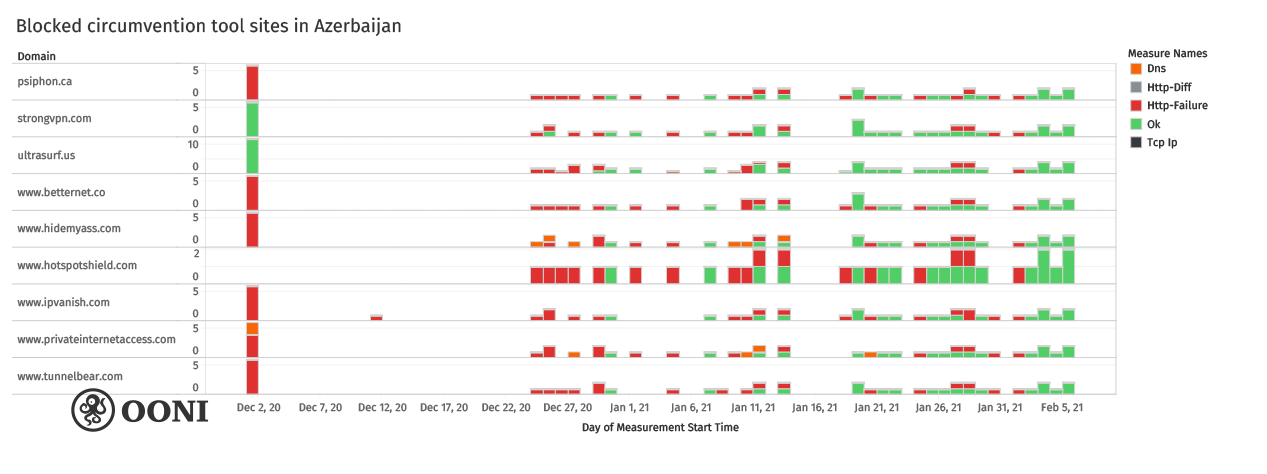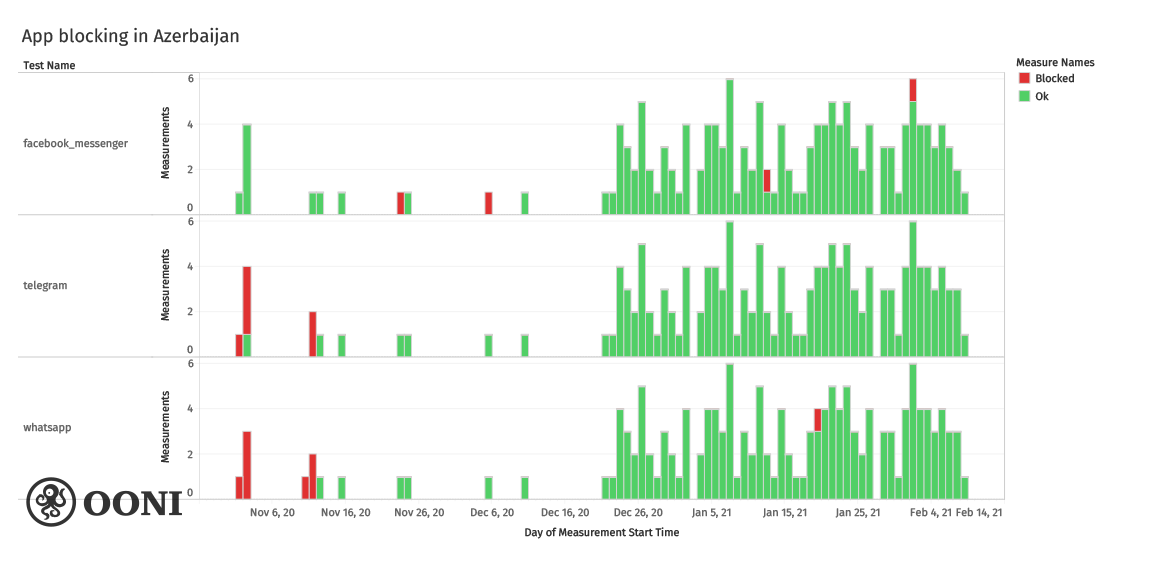On March 1, Access Now released the #KeepItOn report that documents incidents of internet shutdowns globally for the year 2020.
According to the findings of the report:
- there were 155 Internet shutdowns documented across 29 countries;
- there were 28 complete internet blackouts;
- out of the 155 internet shutdowns, six incidents were bandwidth throttling;
- there were at least 26 attempts to deny people access to social media and communication platforms such as Facebook, Twitter, WhatsApp, Instagram, Telegram, and other platforms;
- new countries that have never shut down the internet before, like Tanzania, Cuba, and others, joined the internet shutdown shame list;
This year, Azerbaijan was also included among countries experiencing internet shutdowns.
According to the #KeepItOn FAQ,
“an internet shutdown is ‘an intentional disruption of internet or electronic communications, rendering them inaccessible or effectively unusable, for a specific population or within a location, often to exert control over the flow of information.’ An internet shutdown happens when someone — usually a government — intentionally disrupts the internet or mobile apps to control what people say or do.”
In this context, the report notes that one trend in 2020 was how governments deployed internet shutdowns “in response to ongoing violence — particularly in active conflict zones.” But this decision comes at a great cost. “Amid conflict, shutdowns can hide human rights violations or war crimes, thwart journalism, and put people’s lives in danger.” In Azerbaijan during the armed conflict with Armenia, the government of Azerbaijan announced it would disrupt internet access across the country. This decision, prevented numerous online news platforms, from publishing news, and their readers, from accessing news. The authorities encouraged the Azerbaijani people to only use and rely on government media platforms, and updates from the government institutions. None of which, experienced the same difficulties and challenges with access as did the normal users.
Although the government in Azerbaijan did not ban the use of VPNs which became the top most downloaded apps during the war, it did encourage users not to rely on virtual private networks. Some of the companies refused to offer their services to customers using VPNs on their devices. When confronted, they refuted the claims this was the case.
The new report also mentioned the role tech companies play in internet shutdowns globally, chief among them Sandvine and Allot. Azerbaijan has used the technology by both companies on different occasions and for different purposes. During the 44-day war, Sandine worked with Delta Telecom – Azerbaijan’s backbone internet provider, which is owned by the government to block access to live stream videos from YouTube, Facebook and Instagram.
Given Azerbaijan has purchased both technologies, the chances of both of them being deployed during the most recent internet shutdown are high.
*Sandvine provides Deep Packet Inspection (DPI) equipment that enabled shutdowns and website blocking.
*Allot‘s DPI equipment can track applications in use, what is done while using these apps, the locations of users, the video content viewed, and contacts. It can also shut down entire networks, websites, services, slow down internet traffic so that people cannot transmit videos or photos, or block traffic altogether.





